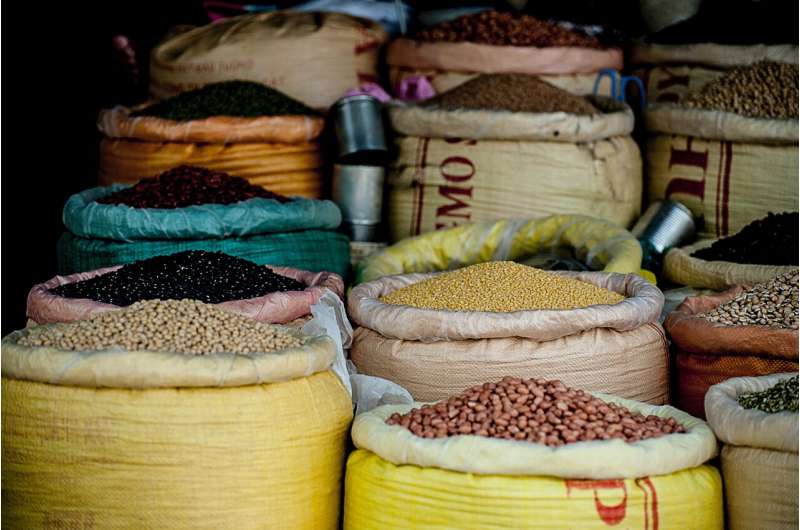This article has been reviewed according to Science X's editorial process and policies. Editors have highlighted the following attributes while ensuring the content's credibility:
fact-checked
trusted source
proofread
Spray-on polymer could cut food waste and increase incomes for Kenyan smallholders

Spraying a safe and environmentally friendly polymer onto soil surfaces can reduce the "soiling" of fine beans by almost 65%, a new study from Cranfield University shows.
Focusing on vegetables produced in Kenya, the reduced food waste could bring greater financial security for smallholder farmers as well as increasing the resilience of the U.K. food supply chain.
The study was carried out by Cranfield University in partnership with AGS Ekology Ltd, Vegpro Kenya and Provenance Partners Ltd. It demonstrated that low-cost commercially available polymers can reduce soil splash by more than 90% and "soiling" of beans by more than 65%.
Dr. Rob Simmons, a reader in sustainable soil management at Cranfield University, who led the project, said, "Our trials demonstrated that this polymer can stabilize the surface of the soil and stop soil splash. At least a quarter of all fine bean rejects are associated with 'soiling' of beans, but during the rainy season this can be 100%."
With fine beans accounting for 70% of Kenya's vegetable exports, the crop is hugely important to the livelihood of farmers and the country's agriculture sector which contributes almost 30% to the national GDP. But the threat of climate change and increased frequency of extreme rainfall events could exacerbate the problem of soiling, and have a devastating impact on smallholder farmers.
Greater income security for Kenyan farmers
Dr. Simmons says that big improvements can potentially be achieved through the polymer spray. "Soil splash can transfer plant pathogens such as Halo Blight and Bean Anthracnose to the growing crop, which can result in yield losses. But if you can prevent soil splash, then you will see a 40%—65% improvement in marketable yield. That's huge for smallholder farmers.
"This work is very innovative—there's never been an effective spray application of these polymers before."
Researchers are now involved in a follow-up project which will see smallholder farmers receive training to cost-effectively apply the spray-on polymer to their fields.
Provided by Cranfield University





















